

These are the poems every gentleman should know by heart
It's World Poetry Day this Sunday — so it's time to dust off your bookshelves, and acquaint yourself with the best in verse...
Words: Izzie Price
Every gentleman should have at least a cursory knowledge of culture. And luckily, there generally tend to be copious resources out there to equip gentlemen with everything they could possibly need to know about the latest Sunday Times bestseller, or the hottest tickets to Glyndebourne. But there is one cultural style that seems to trip men up time after time: poetry.
Just the word tends to induce shudders of boredom, dread and – most often – sheer bewilderment. Let’s be honest: we all studied The Rime of the Ancient Mariner at school; but did any of us actually understand it?
Well, it’s time for all of us to pull our socks up and get to grips with some of the finest ballads, epics and verse ever written. This Sunday (21st March) is World Poetry Day, so we’ve got you set with our pick of the verses that every gentleman should be able to call upon in any situation. Whether you’re navigating a period of great trouble and pain, or attempting to hold your own at a pretentious dinner party: we’ll have you spouting verse non stop.
The Winners by Rudyard Kipling
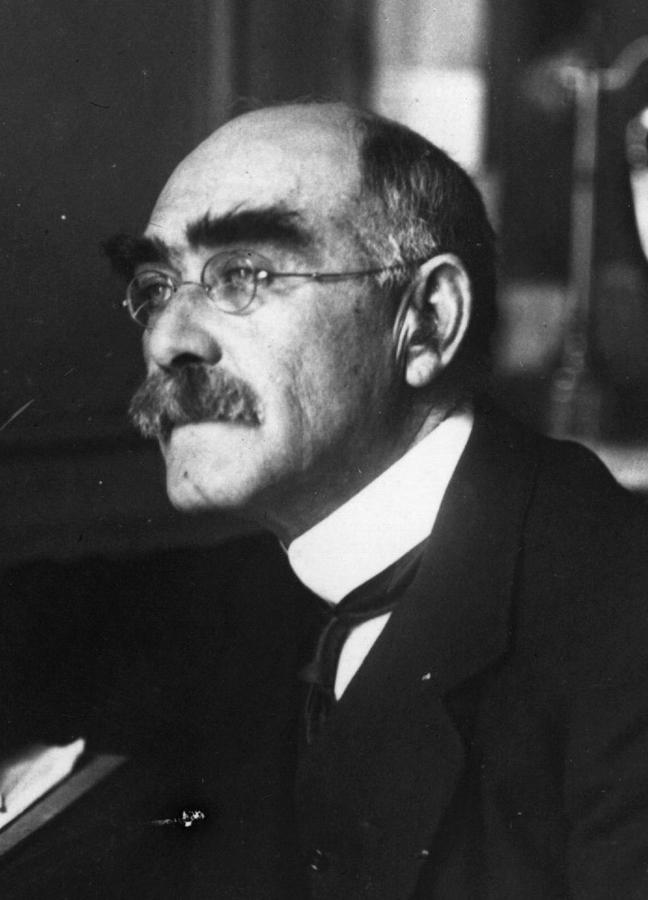
Rudyard Kipling (1865 – 1936), the English author. (Photo by Hulton Archive/Getty Images)
In his seminal 1888 work, Kipling tells the reader that if they want to accomplish something of importance, they should weigh up whether they have the ability to complete it on their own – or must they ask someone else for help?
Essentially, Kipling was frighteningly ahead of his time. He’s pointing out that collaboration can impede progress, so suggests we take the leap anyway, go solo and work on our own terms. While we’ll always be fans of collaboration at heart (there’s no ‘I’ in ‘team’, after all), we must admit that this poem is startlingly apt for our current global situation. Next time your boss tries to get you to come into the office, why not reel off the following:
Key quote:
One may fall but he falls by himself–
Falls by himself with himself to blame.
One may attain and to him is pelf–
Loot of the city in Gold or Fame.
Plunder of earth shall be all his own
Who travels the fastest and travels alone.
The Road Not Taken by Robert Frost
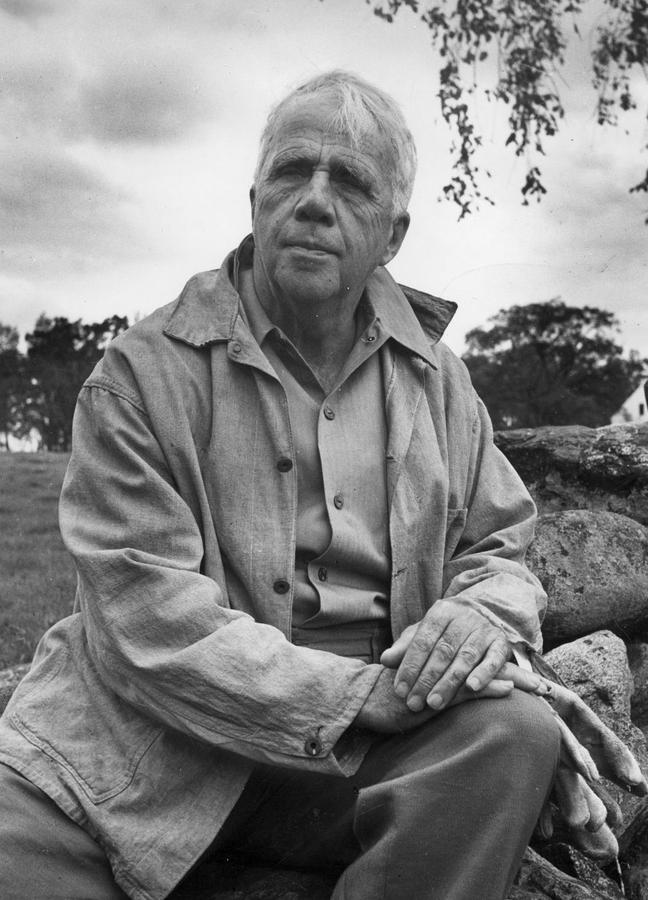
Often described as Frost’s most misunderstood poem, this work is the perfect conversation starter.
Told in four stanzas, it centres around a gentleman plagued by indecision. In keeping with Frost’s renowned poetic style, it lyrically impresses upon its lucky reader that – no matter what choices they make with their life – there will always be a part of them that regrets not taking ‘the other road’. So when rushed to make hasty life decisions, we’d recommend alleviating the pressure by reciting the quote below. You’ll impress anyone in earshot, and it might even help you decide which road to take.
Key quote:
I shall be telling this with a sigh
Somewhere ages and ages hence:
Two roads diverged in a wood, and I—
I took the one less traveled by,
And that has made all the difference.
Do Not Go Gentle Into That Good Night by Dylan Thomas
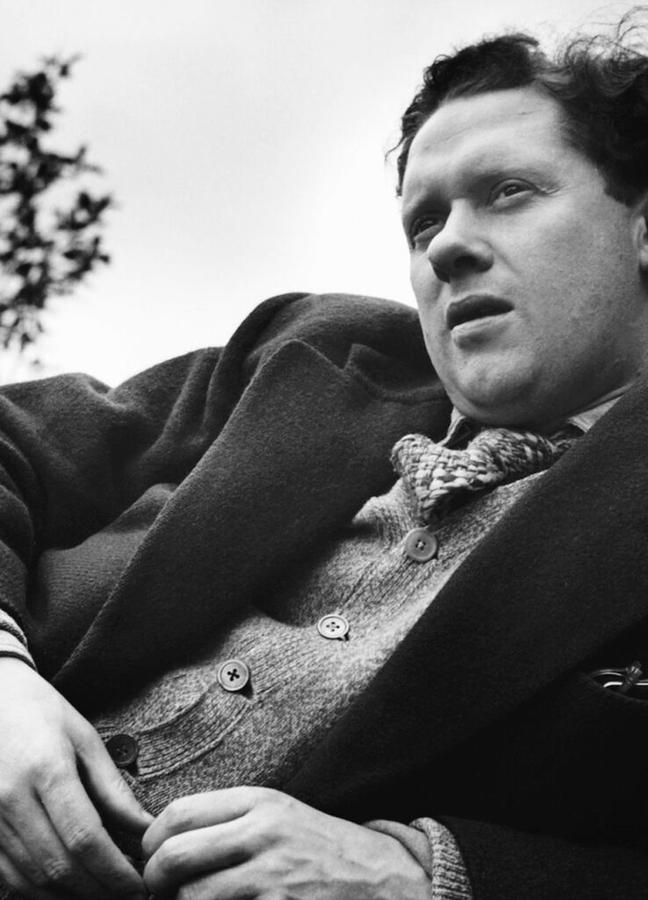
Written in 1947, there have been suggestions that Thomas wrote this villanelle as a message to his dying father.
However, it has become more well-known for its prevalence in popular culture, cropping up in numerous films from Independence Day to Interstellar – and these big-screen stamps of approval emphasise its (already considerable) epic qualities. Rousing, heartfelt and undeniably heroic, this is a poem every gentleman should have in his cultural canon, ready to whip out at a suitably monumental moment.
Key quote:
Do not go gentle into that good night,
Old age should burn and rave at close of day;
Rage, rage against the dying of the light.
Invictus by William Ernest Henley
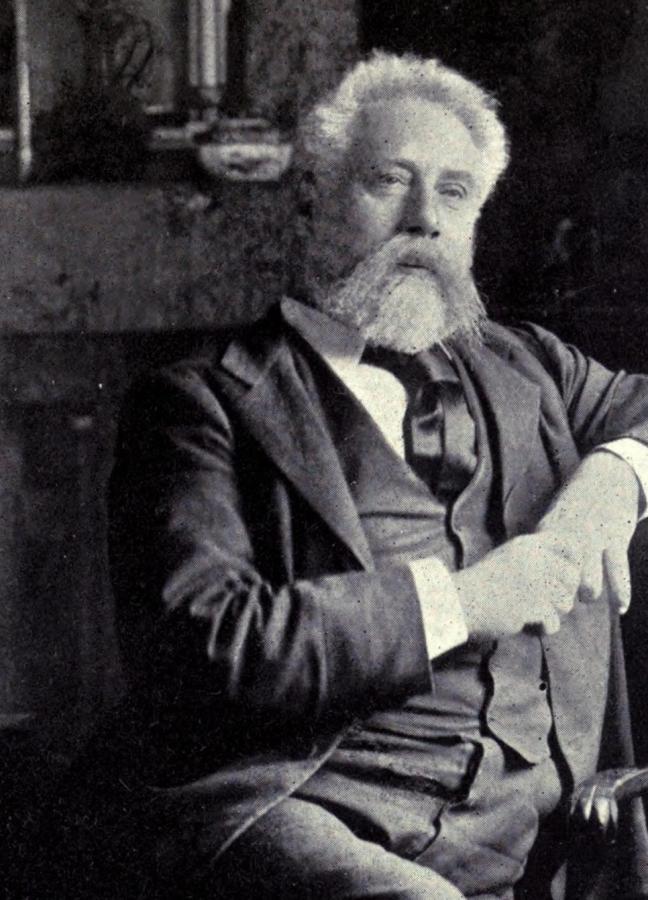
This poem is important not only for Henley himself – whose entire literary reputation hinges on this single, iconic work – but also to multiple famous figures of the last century.
Nelson Mandela was empowered by the poem during his incarceration at Robben Prison. Winston Churchill famously recited its closing lines in Parliament during World War II. Even Barack Obama introduced the work into one of his speeches. So if it’s good enough for world leaders, it’s good enough for us – and for you, too.
Key quote:
It matters not how strait the gate,
How charged with punishments the scroll.
I am the master of my fate:
I am the captain of my soul.
Ulysses by Alfred, Lord Tennyson
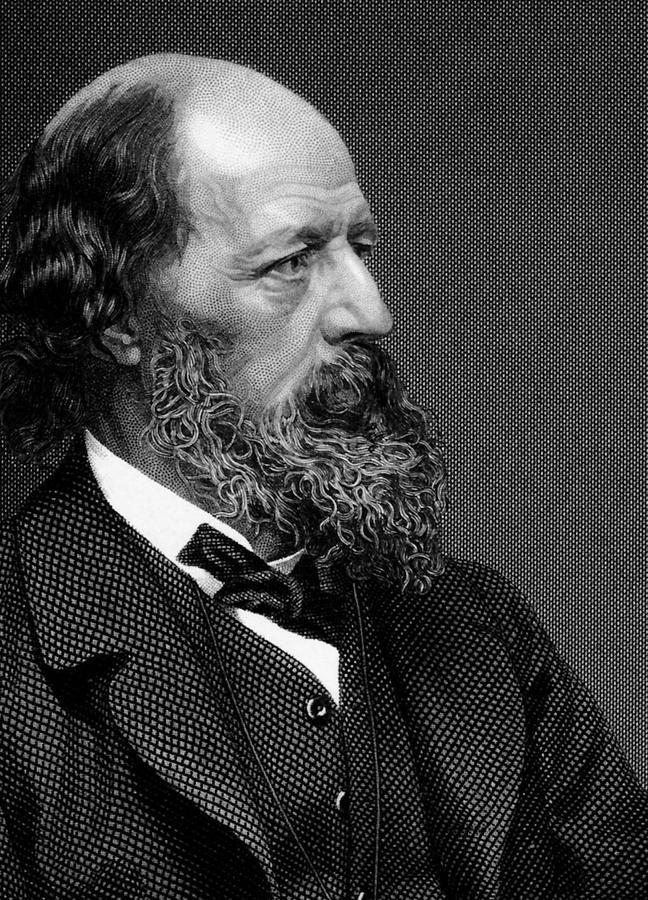
Engraving of Alfred (Lord) Tennyson (1809-1892), English poet. (Photo by Time Life Pictures/Mansell/The LIFE Picture Collection via Getty Images)
Here’s another work which has seeped through into popular culture: the last lines of this Victorian epic crept up in Skyfall (which makes sense: it is a poem for heroes, after all).
Written in blank verse – that is to say, not using rhyme – the poem is told from the perspective of mythical hero Ulysses, expressing his discontent and restlessness at returning home after travelling the world. Discontent? Restlessness? It’s just conjecture, but we’d guess those are two emotions we’ve all become fairly familiar with over the past 12 months…
Key quote:
We are not now that strength which in old days
Moved earth and heaven, that which we are, we are;
One equal temper of heroic hearts,
Made weak by time and fate, but strong in will
To strive, to seek, to find, and not to yield.
The Love Song of J. Alfred Prufrock by T.S. Eliot
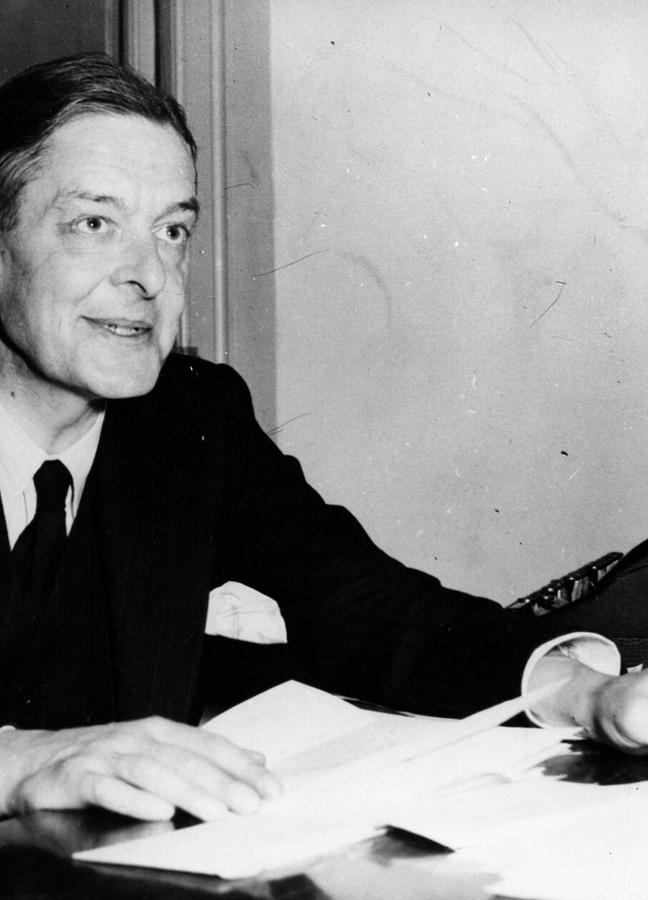
When we think of T.S. Eliot, we mostly think of Cats. But pontificating felines weren’t the only strings to Eliot’s bow: he was one of the most magnificent poets ever to grace the lyrical stage.
In this iconic work, he emphasises how important meaningful, human connection is. He begs the reader to overcome any awkwardness they may feel when encountering others (a fitting instruction for his British readers especially…), and foster meaningful relationships wherever possible. Though he was writing in the aftermath of World War One, this is another poem with bizarrely relevant messages for today.
Key quote:
Do I dare
Disturb the universe?
In a minute there is time
For decisions and revisions which a
Minute will reverse
Character of the Happy Warrior by William Wordsworth
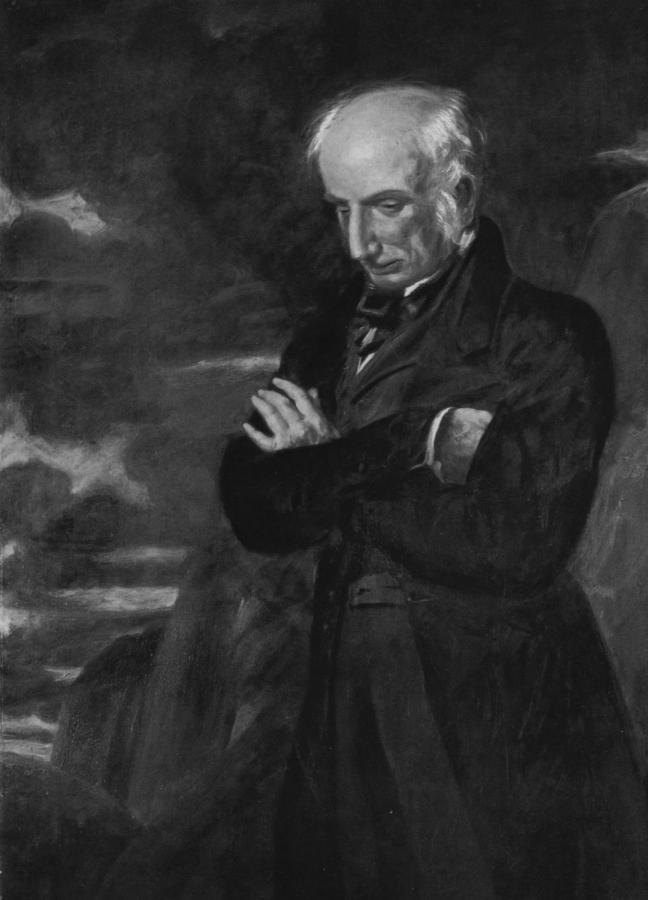
The word ‘warrior’ gets merrily bandied about: but if you’ve ever truly wondered what makes a good soldier, in every sense of the word, then you need look no further.
Because Wordsworth has answers for you in spades. It’s not just about physical strength; Wordsworth likely wouldn’t have had much time for bodybuilding culture. Instead, he applauds inner virtuosity and balancing out an eagerness for battle with a love of home comforts. Whether you’re coming to physical blows or just grappling with a broken coffee machine, this is the poem to carry with you every step of the way.
Key quote:
He who, though thus endued as with a sense
And faculty for storm and turbulence,
Is yet a Soul whose master-bias leans
To homefelt pleasures and to gentle scenes;
Sweet images! which, wheresoe’er he be,
Are at his heart; and such fidelity
It is his darling passion to approve
Sailing to Byzantium by W.B. Yeats
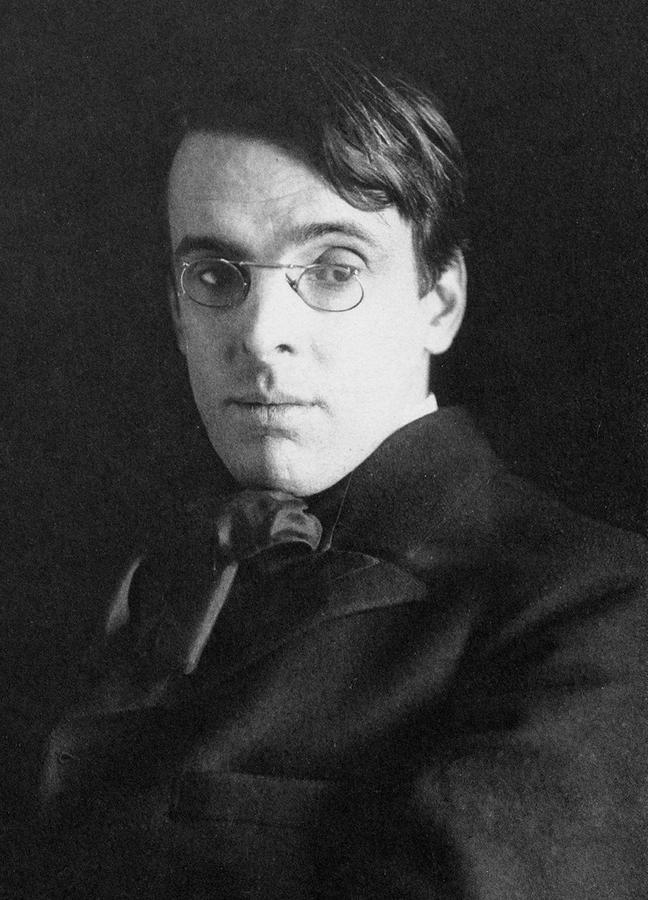
We hear ‘age is just a number’, and we think: ‘sure’ – but Yeats truly believed this, and if his poem is anything to go by then we should, too.
Packed with eye-catching imagery, Yeats explores adolescence and old age in this famous work which he wrote towards the end of his life. He concludes that youth and beauty are about how we see the world around us, and nothing to do with calendars, or years, or steadily increasing birthdays. For anyone who’s dreading hitting a certain age-related milestone, this should be the tonic you need.
Key quote:
Once out of nature I shall never take
My bodily form from any natural thing,
But such a form as Grecian goldsmiths make
Of hammered gold and gold enamelling
The Canonization by John Donne

If all the poems we’ve listed so far seem too wafty, too lyrical or too full of fluff (we’d disagree, but we know poetry is subjective) then you’ll be glad you’ve stuck with us thus far: because John Donne doesn’t mess around.
Refreshingly blunt, Donne doesn’t mince words. This is one of his most famous love poems, and it’s sure to grab any reader right from the off. Don’t mistake us, though – blunt doesn’t mean easy. But keep reading, and searching for the meaning, and you’re guaranteed to be rewarded at the end: Donne isn’t renowned as being one of the wittiest metaphysical poets to have ever lived for nothing.
Key quote:
For God’s sake hold your tongue, and let me love,
Or chide my palsy, or my gout,
My five gray hairs, or ruined fortune flout,
With wealth your state, your mind with arts improve,
Take you a course, get you a place,
Observe his honour, or his grace,
Or the king’s real, or his stampèd face
Contemplate; what you will, approve,
So you will let me love.
Sonnet 130 by William Shakespeare

Of course, we couldn’t equip you with all your poetical needs without saving the best for last: the Bard himself. If anyone knows poetry, it’s this man.
And this sonnet is one of his most famous written works ever published. He puts a new spin on Romantic poetry in a way that’s still deemed iconic today – it’s a love poem, but not of the sort you’d expect to read. He doesn’t go in for evocative imagery or flowery language: just the opposite. He essentially points out that the woman he loves is nothing to look at – but his love for her is past compare. It’s rooted in something higher than looks, and that’s the energy we’re taking with us into World Poetry Day 2021. (We’ve also listed the full poem below, rather than just a snippet – it’s only 14 lines, and it is Shakespeare, after all.)
Key quote:
My mistress’ eyes are nothing like the sun;
Coral is far more red, than her lips red:
If snow be white, why then her breasts are dun;
If hairs be wires, black wires grow on her head.
I have seen roses damasked, red and white,
But no such roses see I in her cheeks;
And in some perfumes is there more delight
Than in the breath that from my mistress reeks.
I love to hear her speak, yet well I know
That music hath a far more pleasing sound:
I grant I never saw a goddess go,
My mistress, when she walks, treads on the ground:
And yet by heaven, I think my love as rare,
As any she belied with false compare.
Feeling as though you’ve read enough words to last you a lifetime? These are the best films about financial scandals to watch right now…
Become a Gentleman’s Journal member. Find out more here.


